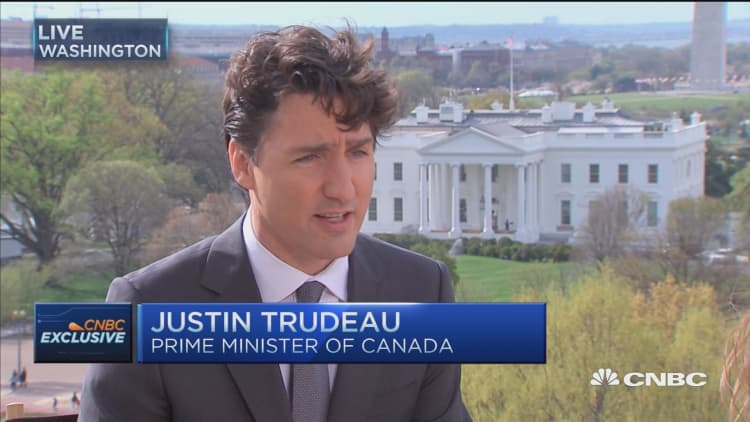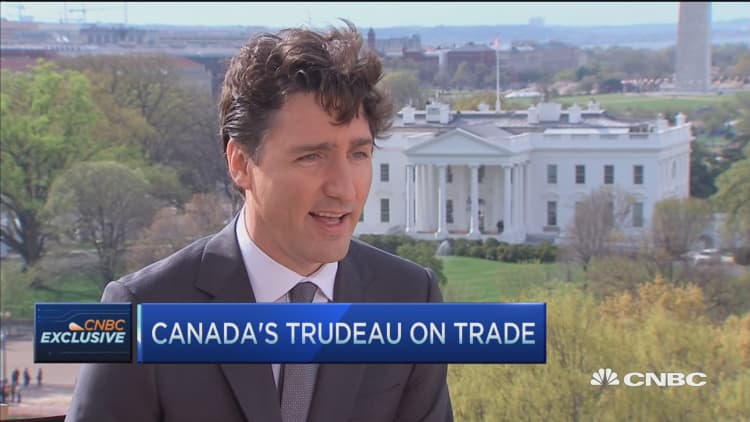



Canadian Prime Minister Justin Trudeau doesn't think a renegotiation of the North American Free Trade Agreement is a "real issue" despite the rhetoric in both major U.S. political parties.
Speaking with CNBC Thursday morning in a wide-ranging interview, the Canadian head of government offered a defense of international trade agreements and explained he was not worried by the "little spikes of protectionism" that happen during elections.
"I think we have to understand that trade is ultimately good, not just for our countries, but for our businesses and our workers," he said. "I'm not worried that we're going to suddenly reopen NAFTA or other trade deals: The challenge is once you reopen it a little bit, they all tend to unravel, and it's too important for both of our economies to continue to have a strong trading relationship."
NAFTA, which went into effect in 1994, eliminated many tariffs between the U.S., Canada and Mexico. It has long been the subject of criticism from both the right and the left on claims that it has hurt manufacturers and killed jobs.
The prime minister emphasized his confidence in the benefits of trade, as it "leads to growth, it leads to jobs," but he acknowledged that different groups may be concerned by the particulars of a given deal.
Still, he said his administration seeks to move forward with international trade "in the constructive, productive ways that Canadians always have."
The debate over trade has played a major role in the U.S. primary elections this year. GOP front-runner Donald Trump has repeatedly contended that America's trading partners are taking advantage of the country, and Democratic candidate Bernie Sanders has argued that the deals lead to poor outcomes for workers.
Trump has particularly lashed out at NAFTA during this election cycle, telling CBS's "60 Minutes" that his administration would "either renegotiate it or we will break it."
But while the U.S. senator from Vermont and the New York businessman are winning over some voters on their trade rhetoric, professional economists have presented a relatively united front in favor of open trade.
Beyond trade, Trudeau sounded a positive note on his country's economic future.
"Canada, quite frankly, with its diversity, with its geographical strength, with its human resources and natural resources, we're well-positioned to grow in the coming years," he said.
And despite the weakness in oil prices — which Trudeau acknowledged are a "big factor" in the fortunes of the Canadian economy — the prime minister said his government is focusing on investment.
"One of the big challenges we're facing around the world is lower growth rates than we need, and where we're positioning ourselves is on the investment side of the investment-versus-austerity debate," he said. "We believe that confident, optimistic countries should be investing in their future, and that's exactly what we're doing."
Earlier this month, Trudeau made the first official visit to the U.S. by a sitting Canadian leader in 19 years, announcing climate change initiatives with U.S. President Barack Obama.
The 44-year-old Trudeau rose to power in October when his Liberal Party defeated former Prime Minister Stephen Harper and his Conservative Party. That victory came 47 years after his father, Pierre Trudeau, first won the country's top governmental office.




